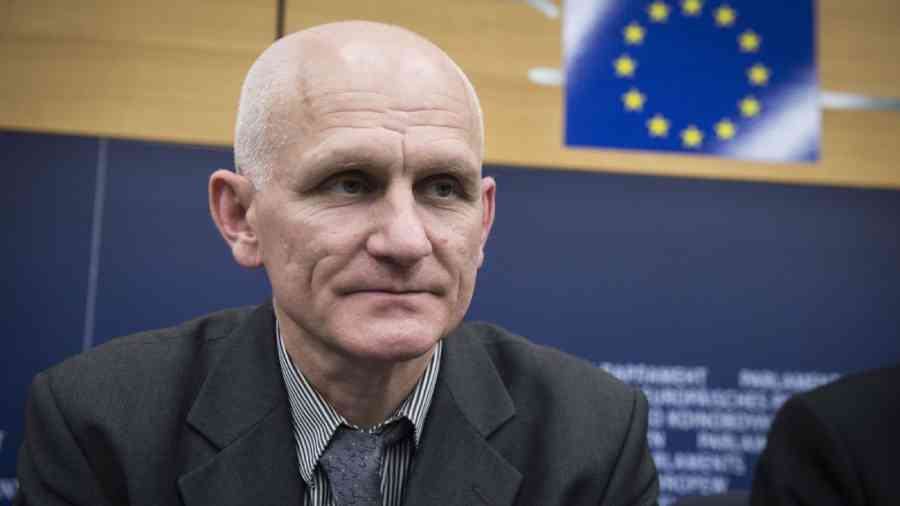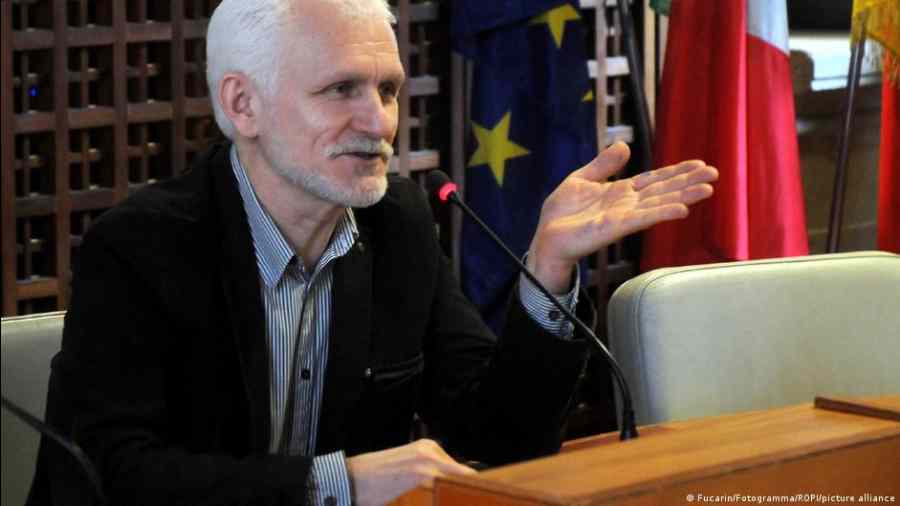A Belarusian court on Friday sentenced Ales Bialiatski, who was awarded the Nobel Peace Prize in October for his decades of defending human rights in Belarus, to 10 years in prison, according to Viasna, the group he helped found.
Bialiatski, 60, has been a pillar of the human rights movement in Eastern Europe since the late 1980s, when Belarus was part of the Soviet Union.
Most members of Viasna are now in prison or living in exile from the country’s authoritarian government, which is one of Russia’s closest allies and a key supporter of its war in Ukraine.
Bialiatski has been in prison since his arrest in July 2021, a detention seen widely as part of a sweeping and brutal crackdown on dissent that unfolded across Belarus after huge street protests erupted in 2020.
Viasna said on Friday that the charges against him were “financing of group actions grossly violating the public order” and “smuggling by an organised group”.
Bialiatski has denied the accusations against him, and rights groups have denounced them as fraudulent.
The UN human rights organisation condemned his arrest as “simply politically motivated”.
Two other members of Viasna, Valiantsin Stefanovich and Uladzimir Labkovich, too were sentenced to prison on Friday, the group said. A video from the proceedings showed the three men, dressed in black, calmly seated inside a defendants’ cage inside the courtroom. Sviatlana Tsikha - nouskaya, an Opposition leader who fled to Lithuania in 2020, called the sentencing “appalling”.
“Ten years for a @NobelPrize laureate shows clearly what Lukashenka’s regime is,” she said on Twitter, referring to President Aleksandr G. Lukashenko, Belarus’s authoritarian leader since 1994.
“We won’t stop fighting for our heroes.”
A lawyer for Bialiatski could not immediately be reached for comment.
The 2020 protests began after Lukashenko claimed 80 per cent of the vote in what many western governments said was a sham election.
With tens of thousands of protesters demanding that he step down, he quashed the protests with the help of Russia, having thousands arrested and forcing Opposition leaders into exile.
The efforts to stifle dissent continued in the following years, including the arrest of a journalist in 2021 after the Belarusian authorities forced a commercial plane on which he was a passenger to land in Minsk, the capital.
Lukashenko repaid the Kremlin for its support in helping suppress the protests by allowing Russian forces to use Belarusian territory as a staging ground for their invasion of Ukraine a year ago.
This week, he travelled to Beijing and met Xi Jinping, the top leader of China, which has long punished dissent.
One of that country’s best-known activists, Liu Xiaobo, was also awarded a Nobel Peace Prize while in prison in 2010.
In Belarus, Viasna has been a leading rights organisation, documenting violations and supporting political prisoners since its founding in 1996.
Before that, Bialiatski was an advocate for democracy and Belarusian independence, organising anti-Soviet protests in the 1980s.
He was in prison from 2011 to 2014 on a charge of tax evasion.
New York Times News Service












